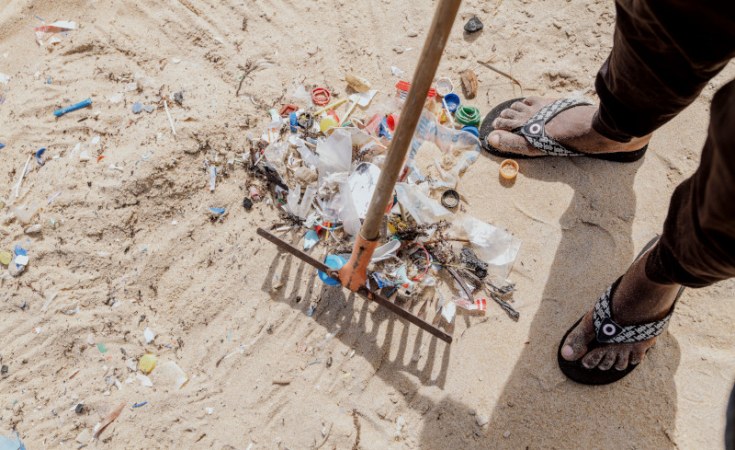In a world drowning in plastic waste, a revolution is brewing. From January 23 to 25, South Africa played host to a groundbreaking meeting of international Plastics Pacts, signaling a unified global effort to tackle the plastic crisis.
The Plastics Pacts, exemplifying public-private partnerships, have become a beacon of hope ahead of the United Nations Global Treaty to end plastic pollution. Major players, from fast moving consumer goods brands to governments, are joining forces, measured against science-based targets to combat the environmental havoc wreaked by plastics.
Following David Attenborough's "Blue Planet" documentary, a global outcry spurred worldwide action. Companies, together with the Ellen MacArthur Foundation, formed the first Plastics Pact in the UK. The idea spread across countries, with South Africa emerging as the third country to embrace this transformative approach. Now boasting 14 plastic pacts, the network gathered for the first time in Cape Town. Representatives from Australia and New Zealand, Canada, Chile, Colombia, India, Kenya, Mexico, Poland, Portugal, South Africa, UK and the USA converged to share ideas, successes, and collaborate on a mission to eliminate plastic pollution.
Plastics Pacts have ushered in systemic changes, pushing for the elimination of single-use plastics and a boost in recycled materials in products. However, the challenge is far from over. "Eliminating single-use unnecessary plastics is something all the pacts have got as one of their targets, another target increasing the amount of recycled material in all your products...The plastic and mounds of plastic are growing all around the world. We're drowning in plastic. So the good work of the Plastic Pact has to be scaled to the next level, has to spread to other countries and we really need more plastics treaties", said Harriet Lamb, CEO of climate action NGO WRAP.
South Africa, an early adopter of the pact, faces challenges. Despite significant strides, the nation generates a staggering 2.4 million tons of plastic waste annually. The answer, according to Lamb, lies in reduction - a primary strategy to combat plastic pollution.
Lamb says the first in-person meeting in Cape Town injected fresh energy into the global pact, inspiring participants to scale up their impact. The agenda includes exploring strategies to move faster, spread to more countries, and be tougher on the use of virgin plastics. The reinforcement of commitment is aimed at creating a high-ambition global plastics treaty.
"... I just think people are very inspired to be together, you know they are struggling with these difficult, really complex, really technical problems sometimes. And to have that chance to come together with other people struggling with the same problem that gives you new energy. It gives you new inspiration...As I said more plastics is coming onto the market from other companies.....we're going to definitely think about what more can we do? Do we want to spread to other countries? How can we move faster? Do we want to be tougher on saying take out virgin plastic, to stop using virgin plastics".
The South African Plastic Pact's launch as the third globally reflects the nation's commitment to a just transition to a green economy. While sharing common goals, each Plastic Pact flexes and adapts to the unique challenges of its country, ensuring relevance and impact.
A standout in this global movement is the crucial role played by the informal waste sector. In many countries, these waste pickers are the backbone of plastic collection, contributing significantly to recycling efforts, according to Lamb.
"...I think there's 20 million waste pickers internationally. Waste pickers collect 60% of all the plastic that gets recycled globally, because in countries like India, like South Africa, like Kenya they are so critical...They are in their communities, they know their communities...They really care for their community and very often, as they go around people you know they get to know everybody, they get to see everybody and they are often famous in different countries. I spent time particularly in Tunisia with the waste collectors, they are really part of the community cohesion because they're going around all day, keeping our streets clean, which is an incredible service, but also because they are meeting everyone all the time. So they're also really key community ambassadors".
As the world grapples with plastics, the meeting in Cape Town serves as a rallying cry for nations to unite, share knowledge, and strive for a future free from the shackles of plastic pollution. - Edited by Melissa Britz


